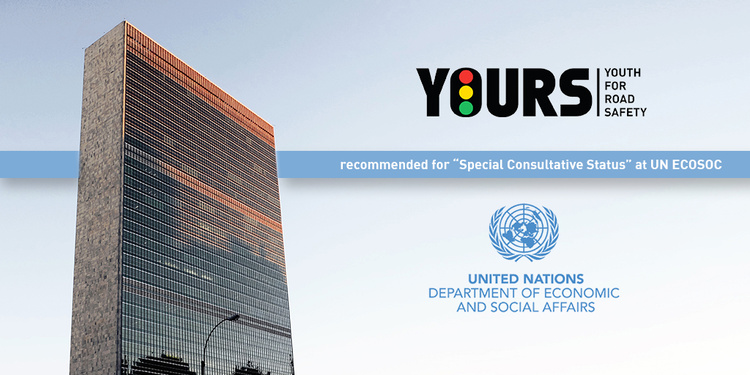The NGO Committee has decided to recommend to the Economic and Social Council (ECOSOC) special consultative status for 16 NGOs. The Economic and Social Council may make suitable arrangements for consultation with non-governmental organizations which are concerned with matters within its competence. Such arrangements may be made with international organizations and, where appropriate, with national organizations after consultation with the Member of the United Nations concerned.
The following organizations have been recommended for special consultative status:
- Fondazione Giacomo Brodolini (Italy)
- Global One 2015 (United Kingdom)
- Gooddler Foundation (United States)
- Humanitarian Exchange and Research Center- HERE (Switzerland)
- International Institute for Research, Documentation and Training for the Prevention and Combating the Falsification of Health Products (France)
- International Interfaith Peace Corps, Inc. (United States)
- OneNess Foundations Diaspora United States (United States)
- Pangloos (France)
- Stichting Iranian Center for International Criminal Law (Netherlands)
- Stichting Youth for Road Safety- Yours (Netherlands)
- Tangata Group, Inc. (United States)
- The United Society (United Kingdom)
- Welcome Clubs International, Incorporated (United States)
- I-Smile International (Ireland)
- Palestinian Initiative for the Promotion of Global Dialogue and Democracy- MIFTAH (State of Palestine)
- Women in Politics Forum (Nigeria
Non-governmental organizations (NGOs) have been actively engaged with the United Nations (UN) since its inception in 1945. They work with the United Nations Secretariat, programmes, funds and agencies in various ways, including in consultation with the Member States. NGOs contribute to a number of activities including information dissemination, awareness raising, development education, policy advocacy, joint operational projects, participation in intergovernmental processes and in the contribution of services and technical expertise.
Executive Director of YOURS, Mr Floor Lieshout said, “We are delighted to have been recommended to the UN Economic and Social Council (ECOSOC) to receive special consultative status. This will allow our organization to participate in the broader UN system and advocate for our cause!”.
Article 71 of the United Nations Charter, which established the Economic and Social Council (ECOSOC), states the following:
The Economic and Social Council may make suitable arrangements for consultation with non-governmental organizations which are concerned with matters within its competence. Such arrangements may be made with international organizations and, where appropriate, with national organizations after consultation with the Member of the United Nations concerned.
— United Nations Charter, Chapter X, Article 71
Article 71 of the UN Charter opened the door to provide suitable arrangements for consultation with non-governmental organizations. Thee consultative relationship with ECOSOC is governed today by ECOSOC resolution 1996/31, which outlines the eligibility requirements for consultative status, rights and obligations of NGOs in consultative status, procedures for the withdrawal or suspension of consultative status, the role and functions of the ECOSOC Committee on NGOs, and the responsibilities of the UN Secretariat in supporting the consultative relationship.
The United Nations has been working to strengthen cooperation with NGOs across the entire United Nations system and in all areas of its work. As a result, United Nations entities are identifying new modalities to promote increased and more strategic participation of NGOs.
ECOSOC consultative status
ECOSOC remains the only main UN body with a formal framework for NGO participation.
is accreditation framework benefits both the United Nations and the NGOs. As stated by resolution 1996/31 on the “Consultative relationship between the United Nations and non-governmental organizations,”
“… Consultative arrangements are to be made, on the one hand, for the purpose of enabling the Council or one of its bodies to secure expert information or advice from organizations having special competence in the subjects for which consultative arrangements are made, and, on the other hand, to enable international, regional, sub-regional and national organizations that represent important elements of public opinion to express their views.”
— ECOSOC resolution 1996/31, part II, paragraph 20









 “When I look back at my own experience speaking at conferences, I was not bold or radical enough. We need to create a sense of urgency by speaking truth to power, making it known that we are frustrated and must hold our leaders accountable, refusing to accept business as usual, and demanding a seat at the table.” Said Floor.
“When I look back at my own experience speaking at conferences, I was not bold or radical enough. We need to create a sense of urgency by speaking truth to power, making it known that we are frustrated and must hold our leaders accountable, refusing to accept business as usual, and demanding a seat at the table.” Said Floor.




